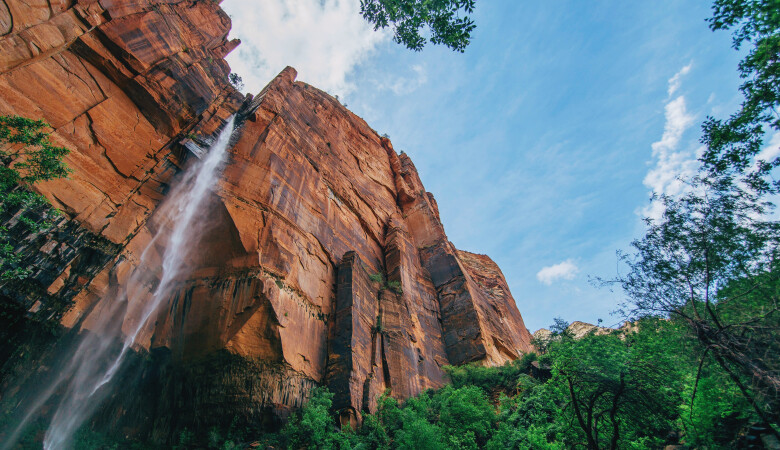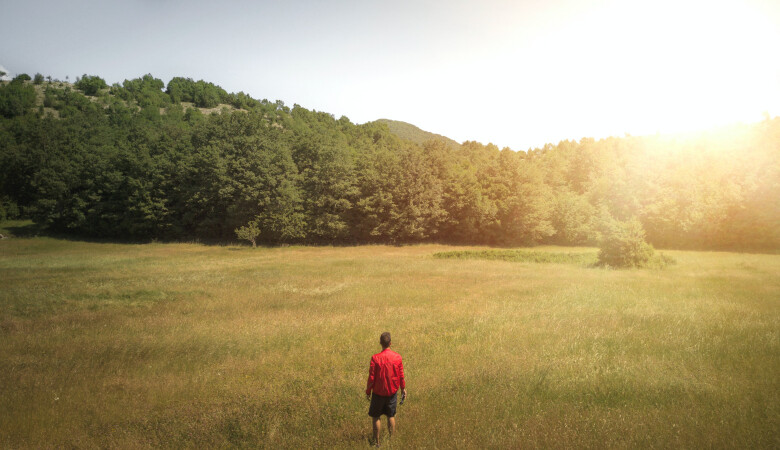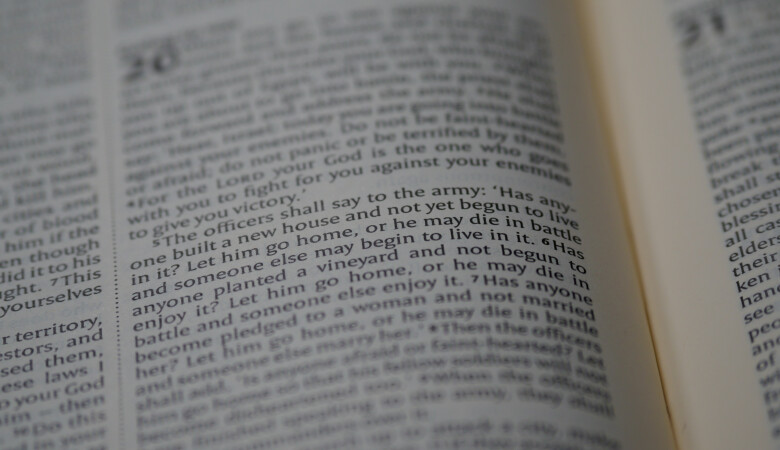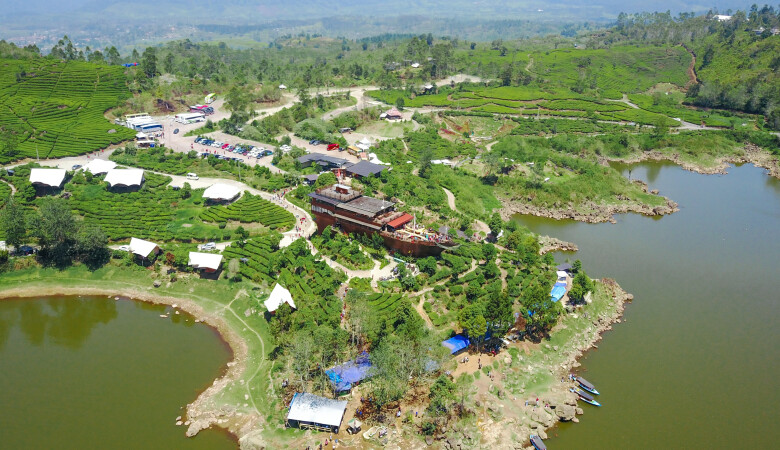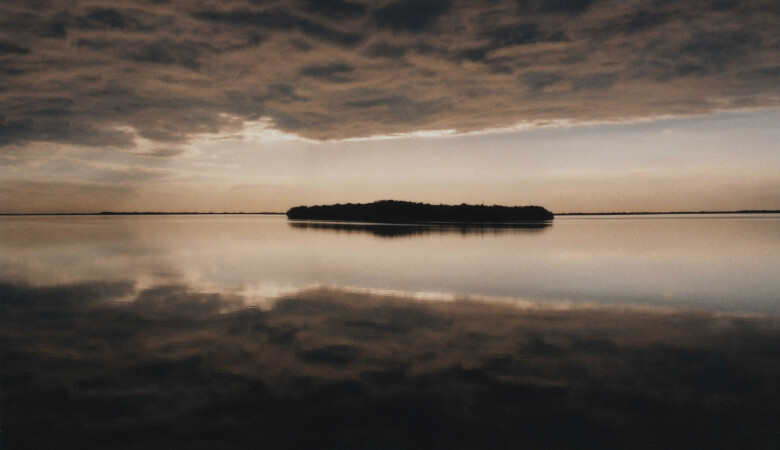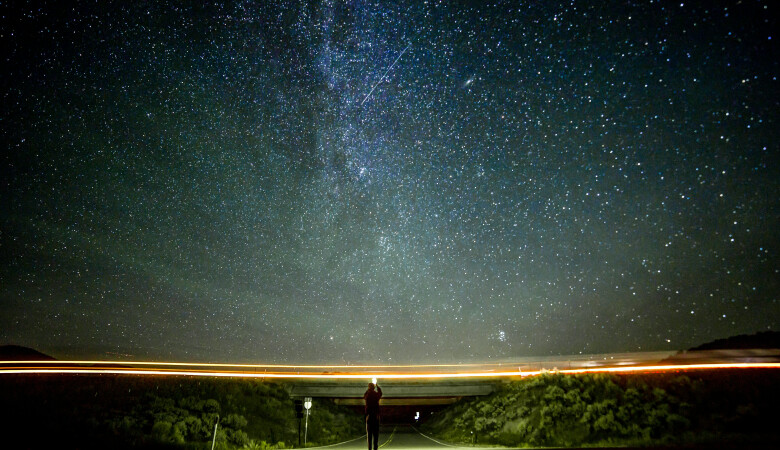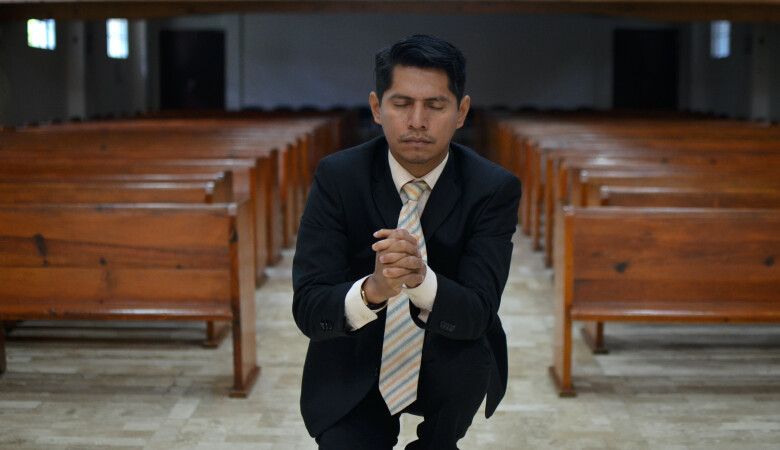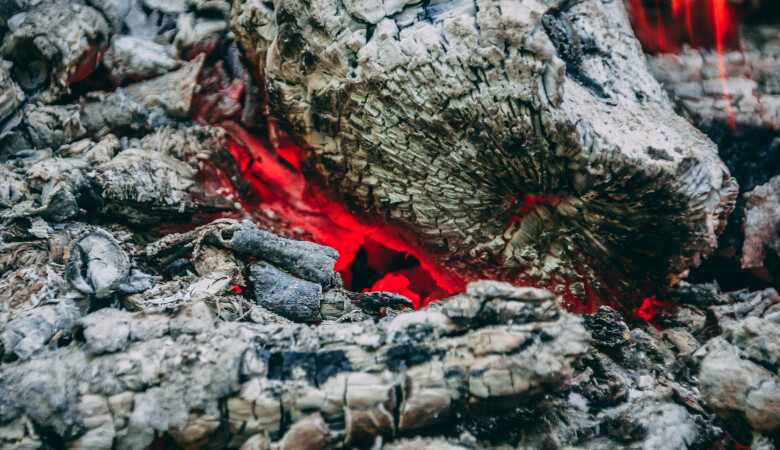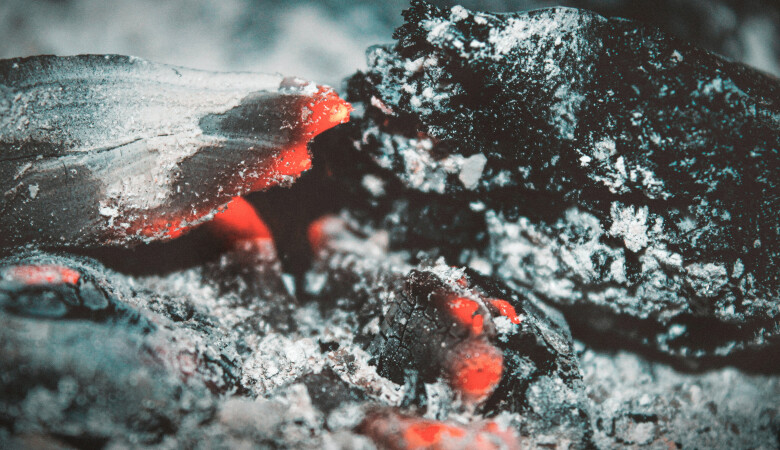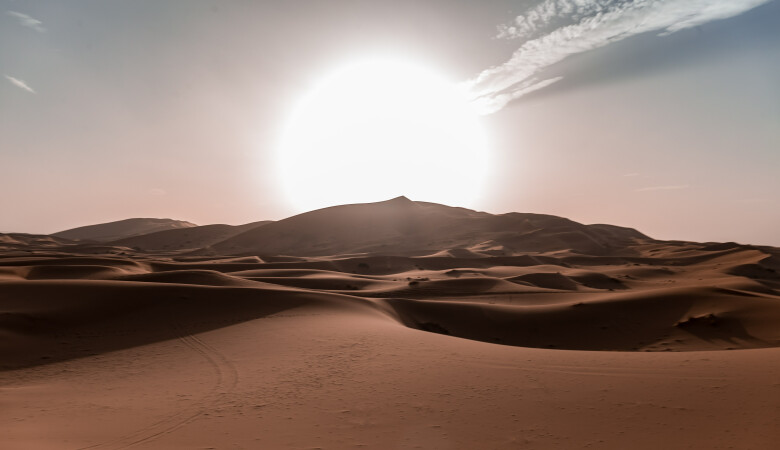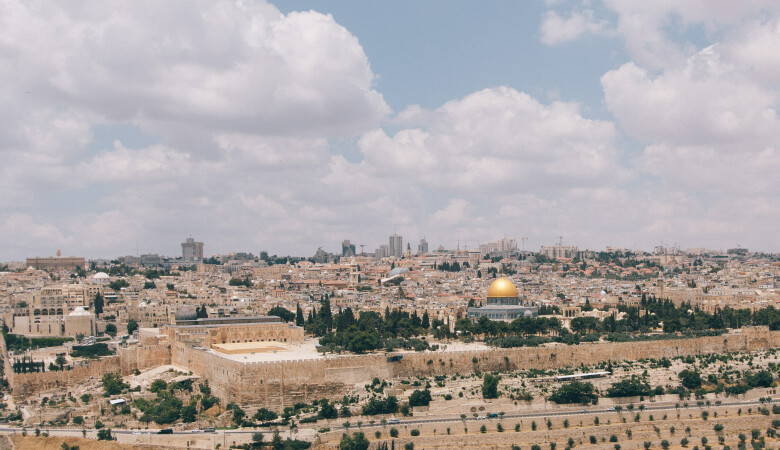Judgment Day Arrives: Noah Enters the Ark
October 17, 1999 | Andy Davis
Genesis 7:1-24
Judgement Day
Pastor Andy Davis preaches an expository sermon on Genesis 7. The main subject of the sermon is Noah's survival from the Great Flood judgment.
- SERMON TRANSCRIPT -
Take your Bibles and open them to Genesis chapter 7. So we look at that chapter and continue in our study in Genesis. We come to the great flood of Noah. A couple of days ago, I went to Lowe's hardware store. You might be wondering what in the world Lowe's hardware store has to do with the great flood of Noah? Actually, not much, but I needed to go to get a new latch for the screen door, the front screen door of my house, and it brought me into the area where they sell doors, and I started looking around, and I was just stunned by the price of doors. Have you ever looked at them? Some of them are $600, $700. I was really amazed. And then something caught my eye, and it's this thing right here, this is a brochure. I am not selling this, I don't receive anything for this at all, I'm not gonna tell you the manufacturer, but they make mahogany and oak entrance systems. Do you know what an entrance system is? An entrance system is a door.
But I was confused by this; I thought, "Well, it looks like a door, but it says it's an entrance system." So I started looking at it, and they have frosted glass, and with inlaid metal and all kinds of things, so I asked the salesman, and he was very excited to get any kind of inquiry at all about this entrance system, he said, "We don't really get many requests for it." I said, "Well, no wonder they probably don't know what it is." But it's a door.
And I said, "Well, how much does a mahogany and oak entrance system go for?" He said, "They go up to as much as $3,000." So no wonder he was interested in talking to me. I said, "No, no, no, don't misunderstand me. There's no way I'm gonna buy a $3,000 entrance system." But I got my little latch replacement kit, which did only cost me about $6.50, that was more in my price range, but as I was driving home, I started thinking about Genesis 7 and about the whole message. I frequently do think about that often, and I started thinking about the door on the side of that ark, that entrance system there, and all that it represents. That door is a window of opportunity. It's a time of grace, it's a chance to come in out of the flood, and in Genesis 7, God shuts it by his own hand. Isn't that powerful?
I.“As it was in the Days of Noah…”
So why don't we read Genesis chapter 7 and see what God would have to say to us from this chapter? Beginning in verse 1, "The Lord then said to Noah, 'Go into the ark, you and your whole family, because I have found you righteous in this generation. Take with you seven of every kind of clean animal, a male and its mate, and two of every kind of unclean animal, a male and its mate, and also seven of every kind of bird, male and female, to keep their various kinds alive throughout the earth. Seven days from now, I will send rain on the earth for 40 days and 40 nights, and I will wipe from the face of the earth every living creature I have made.'
And Noah did all that the Lord commanded him. Noah was 600 years old when the floodwaters came on the earth, and Noah and his sons and his wife and his sons' wives, entered the ark to escape the waters of the flood. Pairs of clean and unclean animals, of birds and of all creatures that move along the ground, male and female, came to Noah and entered the ark as God had commanded Noah. And after the seven days, the floodwaters came on the earth. In the 600th year of Noah's life, on the seventeenth day of the second month, on that day, all the springs of the great deep burst forth, and the floodgates of the heavens were opened. And the rain fell on the earth 40 days and 40 nights. On that very day, Noah and his sons, Shem, Ham, and Japheth, together with his wife and the wives of his three sons, entered the ark. They had with them every wild animal according to its kind, all livestock according to their kinds, every creature that moves along the ground according to its kind, and every bird according to its kind, everything with wings. Pairs of all creatures that have the breath of life in them came to Noah and entered the ark.
The animals going in were male and female of every living thing, as God had commanded Noah. Then the Lord shut him in. For forty days, the flood kept coming on the earth, and as the waters increased, they lifted the ark high above the earth. The waters rose and increased greatly on the earth, and the ark floated on the surface of the water. They rose greatly on the earth, and all the high mountains under the entire heavens were covered. The waters rose and covered the mountains to a depth of more than twenty feet. Every living thing that moved on the earth perished, birds, livestock, wild animals, all the creatures that swarm over the earth, and all mankind. Everything on dry land that had the breath of life in its nostrils died. Every living thing on the face of the earth was wiped out. Man and animals and the creatures that move along the ground and the birds of the air were wiped from the earth. Only Noah was left and those with him on the ark. The waters flooded the earth for a hundred and fifty days."
Now, we've been seeing in this account of Noah and the ark and the flood just how relevant it is to our own day and our own age. For Jesus Christ said very plainly, "As it was in the days of Noah, so it will be at the coming of the Son of Man. For in the days before the flood, people were eating and drinking, marrying and giving in marriage, up until the day Noah entered the ark, and they had no idea about what would happen to them until the flood came and took them all away." That's what happened here in Genesis 7. The people were working, it was just a day like any other day. It was just the same old day. People were marrying, and giving in marriage, people were working out in the fields, emperors were making plans for a new campaign in the spring, workers were planning to make a new house perhaps, or to shape a piece of wood in a certain way. And the floodwaters came and took away all those plans. Nothing was left. It was all gone. And so it will be at the coming of the Son of man, so it will be at the coming of Jesus Christ. Life will go on just as it always has, right up until that day, and Jesus says, "As it was in the days of Noah, so it will be in our final generation. So it will be when the son of man comes in His judgment." People will have no idea what happens until the judgment comes.
II. Difficult Questions
Now, as we come to Genesis chapter 7, we bring with us an amount of baggage. An amount of questions perhaps that need to be answered. Many liberal scholars, critics look on Genesis 7 as they have at other chapters, as a weak link in the authority, the inerrancy of scripture. Is it really possible that water covered the entire surface of the earth? Did it really happen? Is there any evidence whatsoever from geology or archeology that this flood came? What about the ark? Was the ark big enough to take on it all of the animals that it says it took? Is it really possible that it happened this way? Was it scientifically possible for the water to cover the surface of the earth, the entire surface of the earth to a depth of 20 feet over the highest mountain? And if so, where did all the water go after it had flooded the earth? Could it be perhaps that there was just a local flood in the Mesopotamian area between the Tigris and Euphrates River? And that over the years, the mythology grew up, and people began to make it bigger than it really was. Is all of that possible? These are questions we bring to it, and then as one of you asked me this morning, "What about the dinosaurs? Were the dinosaurs on the ark?" Well, these are a variety of things that we have to look at, but along with it, we have to understand the account as it simply comes to us in its natural order.
III. The Last Days
In verse 1, "The Lord says to Noah, 'Go into the ark, you and all your family, your whole family, for I found you righteous in this generation.'" Now, Noah and his household are commanded to go on to the ark. And I think it's very significant, not accidental in any way, shape, or form, that what was on the ark, what was saved through the flood, was a family. It was a family.
"Think it's very significant, not accidental in any way, shape, or form, that what was on the ark, what was saved through the flood, was a family."
Just as God first established a family in the Garden of Eden, he established and protected a family in the flood. It is God's way. And so God gave a command to Noah, and obedience to that command meant salvation from the flood, salvation for his family, and salvation for his loved ones. And Noah's prime motivation at this moment, according to Hebrews 11, was rescuing his family. He wanted to protect them, he wanted to keep them safe. Hebrews 11:7 says this, "By faith Noah, when warned about things not yet seen, in holy fear built an ark to save his family." I guess I had never noticed that before. I went through Hebrews 11 carefully, but Noah's motivation was to rescue and to save his family. It's the primary role of a godly husband and father to protect the wife, to protect the children, and to keep them safe from danger. I'm speaking to you, men, this is your primary role on earth, to care for and to nurture, and to protect your family.
Now, a far greater danger than this flood, as dangerous as that was, was the danger of eternal judgment, and no one knew that there would come a day, a Judgment Day for his family. And so Noah was seeking to protect them, not only physically but also spiritually. And it's remarkable to me is as you go through the Bible and look at the number of times that God works remarkably in families, he works along family lines. Now, people have said before, and it's true that God has no grandchildren. What they mean is that every individual person must come to a personal saving knowledge of Jesus Christ. You can't get in there on the coattails of a godly father or a mother or grandfather or grandmother. You yourself have to come to personal faith in Christ. But isn't it remarkable how often that happens along family lines? That God consistently does this. In Joshua 24:15, Joshua shows that dedication that determination in which he says, "As for me and my household, we will serve the Lord.” That's a decision that I've made for me and for my household, and so he trained his children that way. The theological idea behind it is given in Malachi chapter 2. In Malachi 2, Malachi is warning against divorce, it ends the plan. When a husband and wife split apart, the plan is ended. And so he says, "I hate divorce."
And in Malachi 2:15, he says, "Has not the Lord made them one? In flesh and spirit, they are His. And why? Why one? Because He was seeking Godly offspring." He was looking for Godly children. And they come, they are raised in Godly homes, where a husband and a wife train them up in the nurture and the admonition of the Lord. And then in the Book of Acts, I see at least three different times when God works significantly in someone's household. The first is in Acts 10 with Cornelius the Centurion. Do you remember that? Cornelius had a vision, and he sent for the Apostle Peter to come and preach the gospel to him. But what did Cornelius do in the time that it took Peter to make that trip? He got all his family together. He got all his family, he got them ready. Now, he'd been living his godly life in front of his family all this time, but now it was harvest time. It was time for them all to hear this message, not just his family but his friends and neighbors came as well. He was an active man, and he went out, but he got his family, and he brought them in, and they all believed in Jesus Christ, they were all saved.
Later in Acts 16, the Philippian jailer, same thing. You remember that story? In the middle of the night, the Philippian jailer comes to faith in Christ, but not he alone. He and his household are saved. It's remarkable how the grace of God frequently moves along family lines. And then again, in Acts 18, with Crispus, the synagogue ruler. Maybe you didn't know anything about Crispus, I don't know that much about Crispus, but I do know this, that he and his whole household were baptized and believed in Jesus Christ, Acts 18.
Now, it's interesting in 1 Corinthians chapter 7, it talks very plainly there about a mixed marriage in terms of a believer and an unbeliever. And it says if even one of them is a believer, the children are holy, they're sanctified. Why? Because of the faith of the one believing person. But how much better it is if there's a godly man and a godly woman, a husband and wife, a father and mother training those children to believe in the Lord. And so it was in the days of Noah. So it was for Noah and his family. Now, as we look at Noah and his family, they are to some degree, a last days family. Aren't they? They're in the final generation. And so they are going through things that we, I think should be familiar with, because we also are in the last days, have been for 2000 years.
But we have a sense of escalation, don't we? A sense of the proliferation of evil, and so it was in the days of Noah. There's an acceleration of evil, a hardening of heart, and Jesus himself said that this would happen. In Matthew 24:12, he says, "Because of the increase of wickedness, the love of most will grow cold." That hardening of heart, the coldness within. And so Noah saw that same thing in his own generation. And so God said to him, "Go into the ark, you and your whole family, because I have found you righteous." Implication, you and you alone. Righteous in your generation.
Now, Noah was surrounded by people who scoffed at the word of the Lord, it wasn't important, what God was saying through Noah, they scoffed, and they made fun as we talked about last week. Noah was a preacher of righteousness. And week after week, as he built on the ark, he also preached and preached and preached. He warned them, "The flood is coming." And they scoffed. It says in 2 Peter 3 the same thing will happen in the final generation, the exact same thing. The warning of judgment will come and people will scoff, they will make fun of it. They will shoot the messenger to some degree.
It says, "First of all," in 2 Peter 3:3, "First of all, you must understand that in the last days, scoffers will come, scoffing and following their own evil desires. They will say, 'Where is this coming He promised? Ever since our fathers died, everything goes on as it has since the beginning of creation" That's the very same thing they were saying about Noah. "What flood? We see no evidence for it other than your ark." or, "We don't believe that. There's no flood coming. There's no judgment coming." And so Noah and his family alone entered the ark, they walked through that door onto the ark, and they were alone.
By faith, Noah, when warned about things not yet seen, in holy fear, built an ark to save his family. By his faith, he condemned the world and became heir of the righteousness that comes by faith. He showed us how we are to be saved, by hearing the Word of God and by acting on it, by believing it, by obeying. And so he and his family entered that ark and they were saved.
"By faith, Noah, when warned about things not yet seen, in holy fear, built an ark to save his family. By his faith, he condemned the world and became heir of the righteousness that comes by faith."
Now, it says in verses 2 and 3 that they were to take on the ark clean and unclean animals. Now, we find out more about this distinction later on in the Mosaic covenant in the Book of Exodus and in Leviticus, also in Deuteronomy, we have a very careful listing of what kind of animals are clean and what kind of animals are unclean.
Here we get no listing at all, but no one knew what God meant. And of the clean animals, there were to be seven animals, not seven pairs, but seven. I think there were to be six, three pairs, and then one extra one for sacrifice. The seventh given to the Lord. And we'll see next week in chapter 8, that's the very first thing that Noah does when he sets foot on terra firma again, when he gets off the ark and puts foot on land, he offers sacrifice to God. And so that seventh was to be God's. Just like the Sabbath. And in verse 4, we have that final warning. In verse 4, he says, "Seven days from now, seven days from now, I will send rain on the earth for 40 days and 40 nights, and I will wipe from the face of the earth every living creature I have made." Now, we have no idea whether God communicated daily or weekly, or monthly to Noah along the way or if this was the first word he'd heard since he first got the command to build the ark. We don't know. It's possible either way. Noah was an obedient man. He didn't need to be told twice. He was told to build an ark, and he built it. But it's possible that God communicated all along. But this is a very clear word from God, "Judgment is coming in seven days. It's coming."
And so Noah got very, very busy. The final seven days, the final week of the ancient world. 2 Peter 3 calls it "The world that then was. The world at that time." And it's about to be wiped away. There's seven more days left, and the judgment would come. An entire culture, architecture, plans, and histories, all kinds of things, culture just swept away by the waters of the flood. Seven more days until the flood would come. Judgment day is imminent. And only the godly, only the godly were ready. They were the only ones who heard the message and who believed. They were only ones who were ready, and they entered the ark with Noah.
Now, these seven days were to be used perhaps in final preparations, animals were to be placed in their stalls, food supplies checked and re-checked, perhaps some goodbyes to be said, one final chance to preach the gospel, would not be believed, but perhaps one more chance for repentance. But we see in verse 5 the consistent pattern of Noah's life, and that is total obedience to the Word of God. Noah did everything that God commanded him to do.
Wouldn't you love to write your name in there? Just imagine putting your name in there and say, "And Andy did everything God told him to do." Wouldn't you love to have that said of you? I don't think you can have higher praise than that. There was another person who lived that way, even more than Noah, and that was Jesus Christ. He said, "My food is to do the will of Him who sent me and to finish His work." And he did finish it. Didn't He? The night before he died, he prayed, and he said, "Father, I have brought you glory on earth by finishing all the work you gave me to do." Noah might have let some things drop through his hands, but Jesus let nothing drop through His hands." He said, "I did everything, everything you commanded me to do." And so Jesus' final words in John's Gospel were simply this, "It is finished. The work you gave me to do is completely finished." And by the obedience of Jesus Christ, all of us who hope in salvation, we are all saved. "By the obedience of one man," Romans chapter 5, 1 Corinthians 15, "By the obedience of one man, the many are made righteous."
And so, Noah is a picture of Jesus Christ, isn't he? By the obedience of one man, his whole family is saved, and so also are we, for we are descended from Noah. The obedience, which brings us salvation. Now, in verses 6-10 and 13-16, we get a somewhat repetitive account of the entering of the ark. Now, some liberal scholars have said that you've got different documents that are coming together here. I don't wanna get into all that, I don't believe it so. I think that God is using a certain technique to heighten the emphasis here. He's repeating, he comes on the ark, and then he comes back and gives us more details about the entering of the ark. It's a climactic moment, the entering of the ark, and so he gives it to us twice. And at that moment when he enters the ark, he's 600 years old, and can you imagine what was going through his mind as he understood what was about to happen?
IV. Noah Enters the Ark
I've often thought about our ancestors that came across 100 years ago, that stepped on the boat from the old world, wherever they came from, and I wonder what their emotions were as they left the old world and they were sailing to a new world, very likely never to return. And everything would be different, everything would be new. All of their family relations most likely never see them again, the world has become a very small place now through technology, but back then, when they stepped on that boat and came to the New World, that was it for the most part.
Well, take that feeling and multiply it by 1000 with Noah, he steps on that boat and he knows that the world will never be the same again. Never. It's gonna be totally different from now on. He's entering a new world, the Old World is washed away by the flood, and so all that 600 years of experience, much of it washed away. And yet it's trained him and prepared him to build a new world. God wastes nothing, does He? And so all that 600 years of knowledge and information, all of it is gonna be used by God as he prepares to build a new world when he walks off that ark.
And with him come his faith-filled family, each and every one of us descended from one of them, I don't know which you are from, whether you're from Ham or Japheth or Shem, but all of us are descended from Noah, according to scripture, every single one of us. And so he brought his faith-filled family with him, and every one of them believed. Didn't they? They had to believe Noah couldn't compel them to come on the ark. But each one of those sons and their wives, they all said, "We'll go", and they all came, and they stepped on that ark and by faith they were saved, and only eight of them all told, there were no children on the ark. 1 Peter 3:20, it says in the ark, “only a few people, eight in all, were saved”, That's it.
So only eight people. And then come the animals. Now, people have asked, critics have asked now, how in the world did Noah gather all the animals that needed to gather? But we've touched on this before. Noah didn't gather them. Who gathered them? God did, that's right. Now, I started thinking; I said, I'm gonna run across in my mind all the different places where God demonstrates his direct power over animals. And there's lots of evidence. For example, you know that God commanded ravens to feed Elijah by the brook Cherith, remember that? So he's in control of the Ravens, and they keep bringing Elijah food. You remember that story? So God's in charge of the birds. How about insects? Can you think of stories and which God's in charge of insects? Well, how about the time of the Exodus? All those scourges that he brought on Egypt, a lot of them were insects, they're nats and flies. Locusts, God brought them, and then God removed them. Or how about that one little insect that came and destroyed Jonah's Vine, remember that? That little worm that came and chewed up that Vine. God was in charge of that worm, he brought the worm.
So God's in charge of insects, you may not think he is in charge of insects, you think it's impossible for God to be a good and loving God and still be in charge of insects because you've had so many picnics ruined by them. But it's true, God is actually in charge of all insects. And you should praise him for it. God is in charge of beasts, beasts of the field, He's in charge of donkeys. For example, remember Balaam's donkey? And God spoke through that donkey, controlled the donkey, and God is able to move. And then fish, I'm only mentioning fish. The fish did not need to come on the Ark, there was no need to build a big stall for the whale on the ark, not necessary. 100 tons of krill or plankton every day, that would be devastating for Noah. The whales could swim through the flood, but God is sovereign over fish, remember the number of times that Jesus brought fish into the nets of His disciples, just at the drop of His hat, the fish come. Or again, with Jonah, the whale, just at that key moment, opening its mouth, God is in charge of the animal world, and so all of these animals, they come. They all come to Noah. And I believe, or I imagine that they came just at the very end of the building of the ark. There'd be no need for them to be standing around or reproducing. Lifespan of animals is short. So they had to come really right at the very end. And so just in time, they come onto the ark, and they are saved. And I think God also supernaturally brought a kind of a piece on that ark between the animals. I think it had to be this way. I saw Gary Larson's Far Side Thing, in which there was on the deck of the ark a dead unicorn. Did you see that one? There's a dead unicorn, and then the leopard is standing there over the unicorn, he said, "We've got to keep the meat-eating animals away from the other animals, alright?" And that explains why there's no unicorns anymore. Either the male or the female, Gary Larson doesn't tell us which, but one of them died. And that was it. Alright, the unicorns were extinct.
But the fact of the matter is, I think actually God brought perhaps a supernatural peace onto that ark. Listen to these words from Isaiah Chapter 11:6 and following, "The wolf will live with the lamb, and the leopard will lie down with the goat, the calf, and the lion and the yearling together. The cow will feed with the bear. Their young will lie down together. And the lion will eat straw like the ox. For the Earth will be filled with the knowledge of the glory of the Lord as the waters cover the sea."
Isn't that a picture of peaceful relations between animals that ordinarily are predators to one another? God is able to do that. Some theorists think that many of these animals were in a state of hibernation for much of the time that they were on the ark. I don't really know, the Bible doesn't say. But it's very, very possible. And it says in verse 3 that he brought the male and female to preserve the seed, to preserve their kinds, God had put the genetic information for those animals inside them, and he wanted to preserve that. And I think this is very important, it was not necessary for God to bring all 1 million different kinds of species, etcetera. Just the parents of the species, you see what I'm saying? Because you can get out of the dog parents, you can get foxes and wolves and all of that. You didn't have to have them all there. There was room sufficient for it, but I'm saying genetically, it's not necessary.
Now the question comes, what about the Ark? Is it really big enough? Well. Look at your outline there on the back, have you noticed? Maybe you didn't notice. But there it is, kind of. I don't really know what the ark looked like, nobody knows for sure what the ark looked like. One thing I would change on this is the water line should be much higher. Okay, I think that would have toppled over if it were out that high, okay? But at any rate, you can see just how physically large the ark is. The second ship is a ship about the size of the Mayflower.
So imagine a human being standing on the deck of the Mayflower, look at that. And the ark was huge. Do you realize just how big the ark is? Absolutely huge. And then you've got the largest or the fastest tea clipper ship, the Cutty Sark, below that. And the ark just simply dwarfs it. Now you've got the modern Atlantic liner, which is so much bigger than the ark, but I think that the ark may have been the largest wooden sailing vessel ever. It was absolutely huge. It's like about the size of a medium-sized freight ship. It's estimated that maybe over 500 standard railway freight cars could have fit inside the ark. 500, in terms of cubic volume. Just absolutely huge, sufficient room for all the species necessary on the ark, plus all the food. No question about it.
Now, what about dinosaurs? Were the dinosaurs on the ark? I bet you're wondering about that. I really don't know. I really don't know if dinosaurs... I'll tell you why, I don't know, first of all. I guess I'm just not too trustful of those people who are digging up bones to try to prove evolution. I'd like to see what they have. They piece them together. Have you ever seen pictures of dinosaurs? Did you ever wonder how they got the color of the skin of the dinosaur? I mean, they're very creative. Orange with... You can't get that out of a fossil. Where does it come from? It comes from their imagination. So I want to see the bones, but I believe that the bones may point to species that have, in fact, become extinct, they have.
Now the question is, did they become extinct before the flood or after the flood? If they became extinct before the flood and if they... I mean, after the flood, and if they breathed air through their nostrils, then some of them... A representative had to be on the ark, had to be... It's just the way God wrote it because the flood would cover the entire surface of the earth, and since that time, they would have become extinct, that's all I can say about the dinosaurs. I bet you were hoping that I go on for 10 minutes about the... I don't really have anything more to say about them, they were some species that became extinct, but I can say this about dinosaurs. I will say this about dinosaurs. They point to decay and corruption, which entered the world through death, because they're extinct, they're gone, and they point to the sin and death that entered the world when Adam sinned. But there is a tremendous interest and even preoccupation with dinosaurs these days. I think there are more children's toys in the dinosaur category than any other category, and why? Because I think it points to some people, the evolution, but the whole thing comes down, as I said a few weeks ago, to carbon dating. And with the carbon dating, if you're dating them at 5000 years, fine, they're dinosaurs, but if you're dating them at 1 billion years or something like that, then we have a problem. So that's all I have to say about dinosaurs, were dinosaurs on the ark? I don't know, but that's the best thing I can do with you about dinosaurs.
And then comes the key moment. All of the animals are in place, God has put everything in place, Noah and his family is on the ark. The time has run out. In Verse 17, God says very plainly that he shut the door. He shut them into the ark. The hand of the Lord moved and supernaturally just shut that door. Now, there's practical concerns. See, I'm an engineer, I'm always thinking practically, I'm thinking that door, if it was big enough to let elephants and all that in, that's a big leak problem, do you see what I'm saying? That is a huge leak problem, you don't want a big door on the side of a ship. It's really a problem, you... Not realize all the gasketing and all kinds of research that have to go in to make sure that that thing didn't leak. God said, "I'll take care of that. I'll seal that door, and I'll shut the door." So there's the practical side. But let's look at the theological side.
The theological side, as I said at the beginning, is that door represents grace. Do you see that? It represents opportunity, it represents salvation. Walk through the door and be saved. Stay outside the door, and you'll perish. That door represents salvation. And God is the only one who's allowed to shut that door, He's the only one who's allowed to say when that day is over. He's the only one. When the day of salvation ends, God will say, and then he will shut the door, but that door will be shut.
Jesus talked much about the door very plainly. In Matthew 25:1-13, we have the Parable of the wise and foolish virgins, you remember that story? 10 virgins. Five of them wise, five foolish. What was the difference? The wise ones were ready. They were ready for the coming of the judgment. Foolish ones weren't ready. And so when they went off to get that oil and turned their lamps and all that, they came back. Verse 10 of Matthew 25, “the door was shut.” What does that mean, the door was shut? Opportunity's over, you cannot enter the wedding banquet after the door is shut. So they come, and they knock on the door, and they say, Sir, sir, open the door also for us. But he says to them, I don't know you. Go away. And Jesus said the same thing in Luke 13:24-25. Write that one down, I didn't put that in the notes.
Luke 13:24-25, “Make every effort to enter through the narrow door, because many I tell you, will try to enter and will not be able to. Once the owner of the house gets up and closes the door, you will stand outside knocking.” Does that put a picture in your mind about Noah and the flood? I mean, that's just terrifying, the idea that there are people outside knocking on the door, just knocking. Let us in! When the waters come, we know now, you're right, we see it. Let us in! I can't. The door's shut. Time is over. Should have come in while the door was open. We would have made room for you.
Luke 13:24-25, it says, “you'll stand outside, knocking and pleading, sir, open the door for us. But he will answer, ‘I don't know you or where you come from.’” Do you know how many times Jesus mentions this door? Many times in His parables, it's a time of opportunity, it's the day of salvation, call on the Lord while he is near, while there's still time, walk through that door, because the judgment comes and it comes at last, verse 11 and 12, and then 17 to the end of the chapter, the flood comes, the water comes. God has been saying it. It's just words. That's all it is. Just words. No, it isn't. Now it's water. But when the words come from God, they're as good as true there, you can hold on to them even though you don't see the water yet.
V. The Judgment Comes At Last
God has been saying water's coming, water's coming, and now the water comes, the words turn into water. That's the way God is. I told you it would happen, so the flood comes. Now, there's all kinds of bizarre theories about how catastrophes have occurred on the face of the earth. Geologists have moved away from their billions and billions of years kind of thing, and they realized that there's evidence of catastrophe all over the earth, there's evidence of geological ripping and shaping all over the Earth. And so now they're talking about bombardment of the Earth by asteroids meteorites, sudden slipping of the earth's crust. Maybe a comet that when by and caused the water to get up a little high through gravitational pull, and I think it's best really to just simply read what the Bible says.
What does it say in Verse 11? On that day, the springs of the great deep burst forth and the flood gates of the heavens were open. So what does that mean? Water coming down from above. Water coming up from below. That's how it worked. Now, remember back in Genesis 2, there were streams that were coming up from the earth and watering the ground. Some scholars believe that there really was no rain until this day came, but there was no water coming down from above, you have that canopy and the humidity and the moisture in the air, but no rain. That's what some believe, I don't know if it's true, but it's possible.
But we know that back in Genesis 2, the water was coming up from the earth and watering the ground, and so you got water below, you've got water above, and the Bible says, the springs of the great deep burst forth, there's a rupturing, a sense of violence almost like an earthquake. It just erupted, and the water just came and poured and inundated and just covered. And then from up above, you've got that canopy that I've been talking to you about, all that water, and it begins to deluge, it doesn't just come down by a sprinkle, it just pours. The flood gates is the word, it's like the doors of Heaven are open. So the door on the ark is shut, but the doors of Heaven now for judgment, they are open, and the water floods down. Imagine, if you will, the Hoover Dam, the grand coolly dam, or one of these major dams, and they've got these things called sluice gates, and they control how much water goes through so they can generate the electricity. Imagine the whole thing opened wide open, or imagine the dam just suddenly removed, but that's what it's like, the flood gates of heaven opened, the water just dumps down, and the flood comes.
Now, what was the extent of the flood? How far did it go? Is it really possible that the Bible is talking about a localized flood? Does that read this way in Genesis 7? We're talking about some rising of the rivers, Tigris and Euphrates, so that people had to flee? That's impossible. Let me ask you a question. If you really believe it's possible that this was just a local flood, then why in the world did Noah build an ark? What's the point of an ark if it's just a local flood? God would just move you to safe ground. As a matter of fact, most people survive floods, don't they? There are some that are trapped tragically, but most people see it coming, are able to get away to some high ground to someplace, but there would be no place.
God knew that the entire world would be covered with water, that's why the ark came, the ark argues against a local flood. Why did God bring all the animals? Why didn't he just move them to safe ground, he brought the animals because there would be no place to be except the ark. If you were to look very plainly, Read verses 17-21, and you think, is it possible that this is talking about a local flood? “For 40 days, the flood kept coming on the earth, and the waters increased, and as they increased, they lifted the ark high above the earth.”
The waters rose and increased greatly on the earth, the ark floated on the surface of the water, and they rose greatly on the earth, and all the high mountains under the entire heavens were covered. What in the world do you do with that verse? How do you cover the high mountains of a geographical region for 150 days and have it be a local flood? How does that work?
Have you ever heard of gravity? See, what happens with water is it tends to flow down, you can't have an egg-shaped flood covering over mountains in one area, and then for 150, you might get a tidal wave, but that's not 150 days. The flood prevailed on the earth for 150 days. This is a worldwide cataclysm. Covers the entire surface of the earth. This is not a local flood. And by the way, when I went to seminary, they were teaching me it was a local flood. That was a conservative seminary, conservative. And why? Because they went on the Hebrew word erets, which could mean land or Earth, and they said because of that, we think it's a flood on the local land, it does not read that way. This is a universal flood. The flood lasted, the rain fell for 40 days, and 40 nights, and the water flooded the earth for 150 days, this was sufficient time to accomplish the cleansing of the earth from all that human sin. For 150 days, it prevailed, and it rose up.
And who did the flood affect? Well, it affected anyone who breathed there, animals and humans. Anyone who was not on the ark they were swept away, they're brought into judgment, for that was, was it not, the purpose of the flood, the judging of humans who had sinned. Now, as we look at the flood, what is the significance of it? What does it teach us?
Well, it teaches us very plainly, some things about God's character. God is a patient God, is he not? 120 years, he waited. He waited, and he preached through Noah. He had the object lesson of the growing ark, they could have seen how serious Noah was, he's obviously... They may think he's a crackpot, but he was an intelligent man, and he seriously believed a flood was coming, they had everything they needed to repent, and yet they wouldn't; God is a patient God. And we talked last week about God's patience, Romans 2:4-5. It says it asks us, “do you show contempt for the riches of his kindness, his tolerance, and his patience, not realizing that God's kindness leads you towards repentance?” The day of salvation, the patience and the waiting of God is to give you a time to repent.
The flood also shows us the holiness of God, not just the patience of God, but God's holiness, He's not going to tolerate sin forever. Habakkuk 1:13 says, “Your eyes are too pure to look on evil, you cannot tolerate wrong.” Then the prophet Habakkuk said, God, why then do you tolerate wrong? Why do you just let it go? Why do the wicked prosper? Why does it go on and on? God said, won't go on forever, for I will show myself holy, and I will demonstrate my justice. God is a Holy God, and so judgment comes.
The final and clearest demonstration of the justice of God came at the cross, where he could not simply allow us into heaven, but Jesus died in our place so that we would not have to suffer the wrath of God. Jesus took the wrath, the punishment from God on Himself. He was the Ark, he was the place of safety. He took it on himself, and he suffered under the judgment of God, but God is a just God, and he will not simply allow wickedness and unrighteousness. And then finally, God's faithfulness to his Word. We learned all this from God; God said it would come, and it came. And also, God said he would protect Noah, I will make a covenant with you and those on the ark, "And I will protect you in the flood." And so God did.
"The final and clearest demonstration of the justice of God came at the cross, where he could not simply allow us into heaven, but Jesus died in our place so that we would not have to suffer the wrath of God."
That's what we learned about the character of God, what do we learn about the calling of man? Well, we see, first of all, that man is called to be holy. God says, Be holy as I am holy. If not, God will bring the flood, He'll bring the judgment. Now, He's already promised he will not bring another water flood, but judgment comes, and so God says, Be holy as I am holy.
We also see a direct connection between human beings and the earth. The earth is judged because of the sins of human beings and also direct connection between human beings and animals. Noah had to care for those animals. Now, people have talked about time machines, it's not possible to travel in time, but some say, “If I could travel back in time, you know what I would do? I would go back to the time of the flood, and I'd get on that ark, and you know what I do? I'd go find those two little mosquitoes. I would find those mosquitoes, and you know what I would do to those two little mosquitoes, I would kill them, and then you know, as long as Noah gives me... Maybe he doesn't know, it's gonna be like a Nintendo kind of thing, or I'm gonna... A ninja raid, I'm gonna go in there, and I'm going to... He's not gonna see me, and then I'm gonna look for the snakes, okay? And I'm gonna kill all the snakes, and when I get done, I'm gonna find the flies and the spiders.” And on and on. Did Noah do that? No.
Noah's a godly man, and you know what? He said, God made these, and I may not understand the purpose; I may not know why God created a slug. For example, I don't really have any idea, but I know that perhaps if all the slugs were instantaneously killed, maybe it would affect the biosphere in some way that we can’t understand. God is... He is a wise God, and everything he makes shows his wisdom. And so Noah was there on the ark, caring for these animals, there's a connection, that servant leadership, where he's on the ark, and he's feeding them, caring for them, ministering to them, the connection between Noah and the animals.
Ultimately, God was going to re-establish the mandate that he had given to the human race. The mandate simply to fill the earth with the knowledge of the glory of the Lord as the waters cover the sea. Noah, very soon, the waters will disappear, and then I want you, through your children, to fill this earth. I want you to fill it with the image of God, I want you to fill it with descendants who love me and who will serve me and who will know of my glory.
As I conclude today, I wanna bring you back to the entrance system. Do you remember the entrance system? The entrance system to these folks is a very expensive mahogany door. Would you pay $3000 for a door? Probably not. But then I got thinking about the entrance system to heaven. There is a door to Heaven. Revelation Chapter 4 Verse 1, the apostle John said, “After this, I looked and there before me was a door standing open in heaven.” Did you hear that? A door standing open. It's an open door. That door will be shut someday, just like Noah's Ark, the door on Noah's ark was shut by the hand of the Lord. That door is open now, it's open today. And do you know the cost of that door? It wasn't $3000. It was the cost of the blood of the only begotten Son of God. That's how much that door cost. Can you measure that cost? That's an expensive door. But Jesus said in John chapter 10, verse 7, “I tell you the truth, I am the door for the sheep. Whoever goes through me will be saved.” Jesus is the door for the sheep.
Can I offer an invitation to you today to walk through that door? If you've never given your life to Christ, come today. There's nothing magical about getting up and walking forward and talking to me, but if you don't do it today, when are you gonna do it? Where are you gonna give your life to Christ? Come to Jesus, walk through that door while there's still time.



